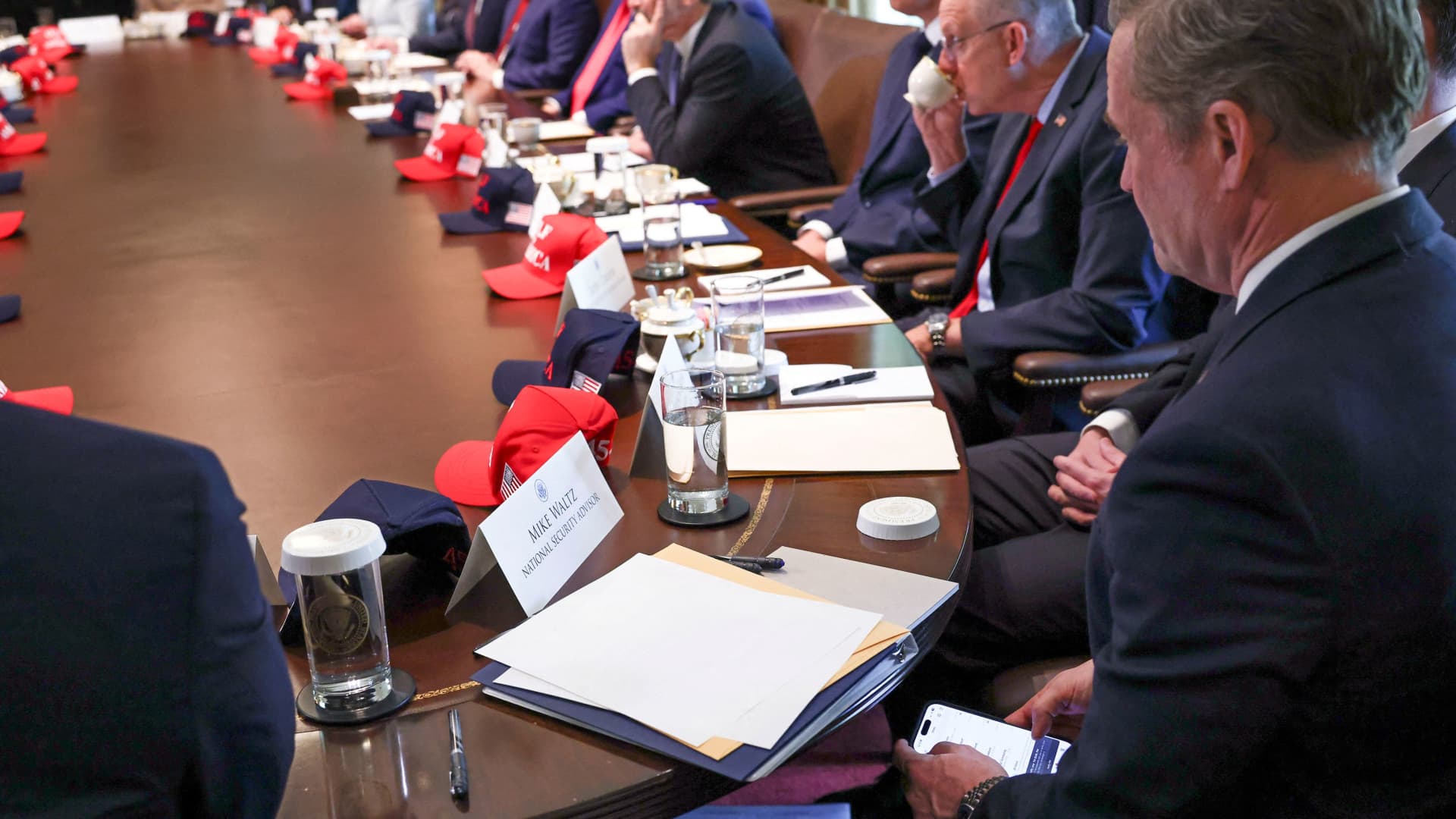The Signal Scandal: Unpacking the Trump Administration’s Messaging Fiasco
The Emergence of Signalgate
The use of secure messaging apps by government officials has long been a subject of interest, but it catapulted into the spotlight when it was revealed that Trump administration officials were using Signal, despite President Trump’s public discouragement. This incident, dubbed “Signalgate,” has ignited a firestorm of criticism, legal actions, and public outcry. To understand the full scope of this scandal, it’s essential to explore its origins, the legal and ethical implications, and the reactions it has provoked.
The Genesis of the Scandal
The scandal began when it was discovered that former White House national security advisor Mike Waltz was communicating with other Trump officials on Signal. This revelation was particularly surprising because President Trump had publicly discouraged the use of the app. The controversy erupted when a photo surfaced showing Waltz with Signal threads involving individuals identified as JD Vance and Marco Rubio, among others. This image raised eyebrows and sparked a wave of questions about the administration’s communication practices.
Legal and Ethical Quagmire
The use of Signal by Trump officials has raised significant legal and ethical questions. Signal is renowned for its end-to-end encryption, which ensures that messages are secure and can disappear after a set time. However, this feature also means that messages can be easily deleted, making it difficult to maintain a record of official communications. This has led to criticisms from former officials like John Bolton, who have argued that such practices can lead to a lack of transparency and accountability.
The scandal took a more serious turn when a U.S. district court judge ordered that certain immigrants should remain in the U.S. as they awaited trial. Despite this order, Trump officials reportedly sent the men away, thwarting the law. This action has been widely criticized as a blatant disregard for legal processes and judicial orders, further complicating the ethical landscape of the scandal.
Public and Veteran Outcry
The Signal scandal has not gone unnoticed by the public, especially among veterans. Post-9/11 veterans have demanded accountability for the leak of what they see as classified information via the Signal messaging app. A survey by the Iraq and Afghanistan Veterans of America (IAVA) revealed that more than eight in 10 veterans believe there should be accountability for the Signal leak. This sentiment underscores the seriousness with which the public views the handling of classified information and the need for transparency in government communications.
The Administration’s Defense
The Trump administration has faced significant backlash over the Signal scandal. In response to the criticism, the administration has rebuked claims that intelligence officials frequently use Signal, maintaining that the app’s use was limited and not widespread. However, the damage has already been done, and the scandal has led to a major staff shakeup, with multiple officials involved in the Signalgate scandal leaving their posts. This internal upheaval highlights the administration’s struggle to manage the fallout from the scandal.
Signal’s Stance
Signal, the messaging app at the center of the scandal, has issued statements to clarify its position. The company has emphasized that its software is designed to protect user privacy and that it does not have access to the content of messages sent through the app. However, the scandal has put Signal under scrutiny, with many questioning the appropriateness of using such apps for official government communications. The app’s design, while beneficial for privacy, has become a point of contention in the context of government transparency.
National Security Concerns
The Signal scandal has raised serious concerns about national security. The use of encrypted messaging apps by government officials can make it difficult to track communications and ensure that sensitive information is not leaked. This has led to calls for stricter regulations on the use of such apps by government officials and a re-evaluation of how national security is maintained in the digital age. The balance between security and transparency has never been more critical.
The Future of Government Communications
The Signal scandal serves as a wake-up call for the government to reassess its communication practices. As technology continues to evolve, it is crucial for government officials to adapt and ensure that their communications are secure and transparent. This may involve the development of new communication tools that balance the need for security with the need for accountability. The future of government communications will likely see a greater emphasis on transparency and the use of technology that can be monitored and audited.
Conclusion: A Call for Transparency and Accountability
The Signal scandal has highlighted the complexities and challenges of maintaining secure and transparent communications in the digital age. As the Trump administration grapples with the fallout from this scandal, it is clear that there is a need for greater transparency and accountability in government communications. The public, especially veterans, has made it clear that they expect their leaders to uphold the law and maintain the highest standards of integrity. The Signal scandal serves as a reminder that in the age of digital communication, the stakes are higher than ever, and the need for vigilance and accountability is paramount. The path forward requires a commitment to transparency, the development of secure communication tools, and a renewed focus on accountability to restore public trust and ensure the integrity of government operations.








